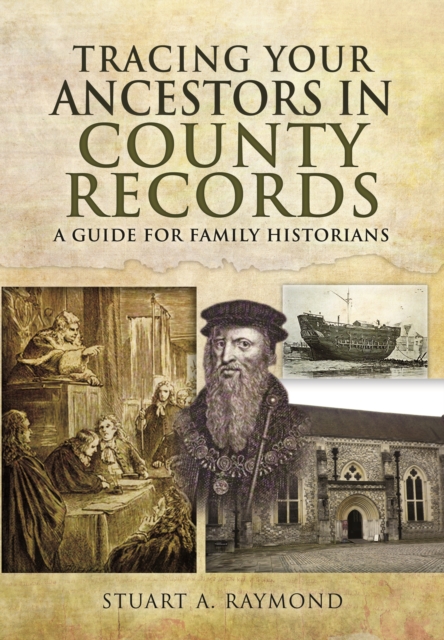
Tracing Your Ancestors in County Records Paperback / softback
by Stuart A. Raymond
Paperback / softback
Description
For over 500 years, between the fourteenth and nineteenth centuries, the Justices of the Peace were the embodiment of government for most of our ancestors.
The records they and other county officials kept are invaluable sources for local and family historians, and Stuart Raymond's handbook is the first in-depth guide to them.
He shows how and why they were created, what information they contain, and how they can be accessed and used.
Justices of the Peace met regularly in Quarter Sessions, judging minor criminal matters, licensing alehouses, paying pensions to maimed soldiers, overseeing roads and bridges, and running gaols and hospitals.
They supervised the work of parish constables, highway surveyors, poor law overseers, and other officers. And they kept extensive records of their work, which are invaluable to researchers today.
As Stuart Raymond explains, the lord lieutenant, the sheriff, the assize judges, the clerk of the peace, and the coroner, together with a variety of subordinate officials, also played important roles in county government.
Most of them left records that give us detailed insights into our ancestors' lives.The wide range of surviving county records deserve to be better known and more widely used, and Stuart Raymond's book is a fascinating introduction to them.
Information
-
Item not Available
- Format:Paperback / softback
- Pages:224 pages, 40 illustrations
- Publisher:Pen & Sword Books Ltd
- Publication Date:06/07/2016
- Category:
- ISBN:9781473833630
Other Formats
- EPUB from £2.99
Information
-
Item not Available
- Format:Paperback / softback
- Pages:224 pages, 40 illustrations
- Publisher:Pen & Sword Books Ltd
- Publication Date:06/07/2016
- Category:
- ISBN:9781473833630






